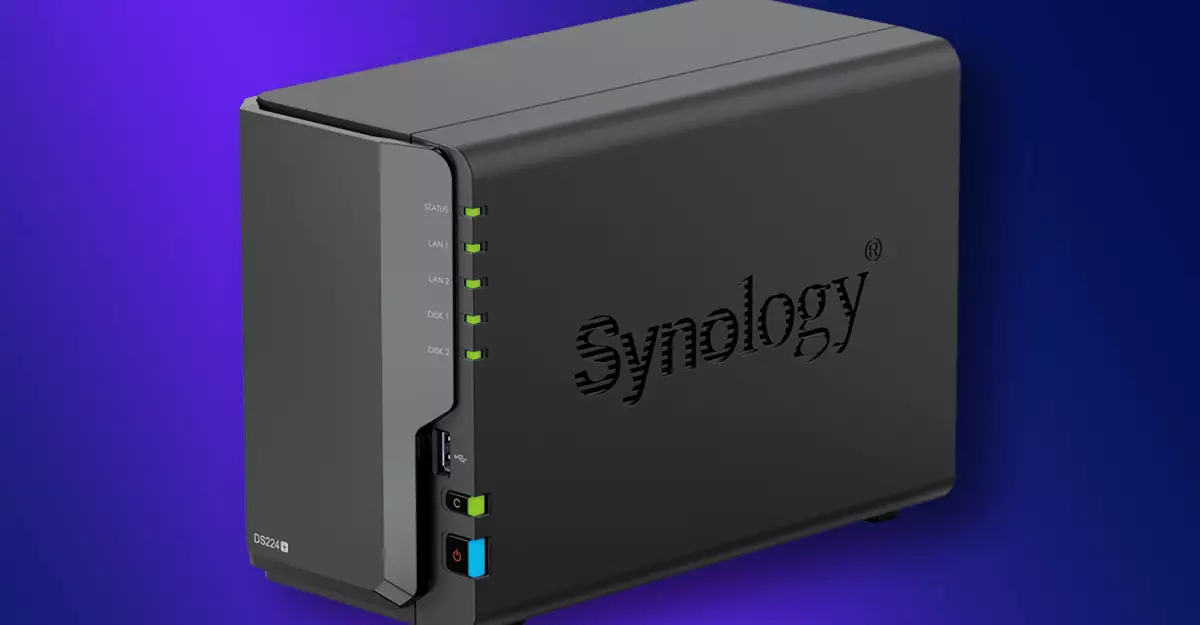As a technology enthusiast, it’s disheartening to witness a company that many of us have trusted for its versatility and consumer-friendly approach shift towards a more restrictive model. Synology, a renowned name in network-attached storage (NAS), has announced that starting with its Plus Series models set for release in 2025, only Synology-branded drives and those certified by the company will be favored. This move has sparked a conversation about the implications for users who value flexibility and choice when it comes to hardware.
Synology’s decision essentially locks potential customers into a more expensive ecosystem, limiting their alternatives and affecting their ability to customize their storage solutions effectively. While the intent behind the restrictions is to ensure compatibility, reliability, and performance, the underlying message appears to prioritize control over convenience. For a company that has built its reputation on being user-friendly, this change feels like a step backwards.
The Impact on Existing Users
Fortunately for those who currently own Synology NAS devices, the new restrictions won’t directly impact them. Synology assures existing users that their devices will remain functional with third-party drives. However, it’s essential to consider the long-term implications of this shift. Will existing users feel compelled to upgrade in the future, potentially facing the choice between sticking with less optimal options or entrusting their data to a system that favors a narrow brand of hard drives? These considerations pose significant dilemmas for consumers wanting to maintain their autonomy when it comes to hardware choices.
In the tech world, stability often boils down to what hardware is available at a reasonable price. If Synology truly aims to fortify data reliability and minimize compatibility issues, it should be noted that a robust selection of third-party drives can often provide users with the best of both worlds—cost savings and functional flexibility. By restricting options, Synology may inadvertently set users up for future frustration when they encounter the unexpected expense of branded drives that offer no real improvement over their third-party counterparts.
Commercial Interests vs. Consumer Rights
Analyzing the motivations behind Synology’s restrictions unveils a complex interplay between commercial interests and consumer rights. While the company cites rigorous internal testing as the reason for limiting compatibility—arguing it enhances reliability and performance—the reality is more nuanced. This strategy recalls various industry trends where manufacturers discourage third-party accessories to bolster their own sales. It’s an ethical tightrope for Synology, which must balance the need for software integrity and reliability with consumer freedoms.
Additionally, if Synology’s future devices are genuinely more reliable with certified drives, then surely a compelling case could be made for transparency. The company could provide comprehensive data on how many failures have occurred with third-party hardware compared to their certified options. Without this transparency, customers are left to navigate the murky waters of trust and doubt regarding their storage solutions.
The Parallel with Other Industries
Synology is not the first tech company to tread the grounds of hardware restrictions. Industry parallels can be drawn to printer companies that impose similar limitations, subsisting on a model designed to funnel customers into costly consumable purchases. It is easy to see why consumers might find this model increasingly frustrating in a time when flexibility and sustainability are highly valued. The tech landscape is evolving, and many users are advocating for a wide variety of choices rather than being confined within a proprietary ecosystem.
In an age where consumers are more informed and assertive about their tech products, it wouldn’t be surprising to see backlash against Synology’s newly instituted regulations. Companies that embrace a more open approach often see greater loyalty and a stronger community build-up around them. Keeping the consumer at the forefront should be paramount; otherwise, the risk of alienating them looms larger with each decision.
Looking Ahead: Where Does Synology Stand?
As Synology continues to plan the release of its new NAS devices, it will face scrutiny. While the company ostensibly seeks to enhance effectiveness and reliability, the path it has chosen raises questions about user agency. By limiting choices, Simultaneously, it risks tarnishing its reputation as a champion of user rights in the tech sector. Only time will reveal whether Synology can strike the balance between lofty promises of reliability and the practical needs of its diverse user base. Ultimately, the usability and trust that built its brand will now hang in the balance, tested by choices that could either empower or restrain the very community it seeks to serve.

